Jamaica Beach Birthright Environmental Movement (JaBBEM) Fights Relentlessly for Public Access to Jamaica's Beaches
Jamaica Beach Birthright Environmental Movement (JaBBEM) remains unrelenting in our fight for public access to all beaches across the island on behalf of every Jamaican. On September 11, 2024, JaBBEM take to the Sutton Street Resident Magistrate Court to continue in defence of a case for Prescriptive Rights to access Bob Marley Beach in perpetuity. JaBBEM call for the government to vacate instruments of law that continue to undermine the public and deny them of their rights to frequent beaches that are post-colonial hostages of the plantation tourism model. JaBBEM will never give up the fight!

Get Involved TODAY
https://www.jabbem.org/ways-to-get-involved
The issue of public access to Jamaica's beaches and waterways has become a pressing concern for residents and advocates alike. With a history rooted in colonial legislation, the current restrictions on beach access not only hinder the rights of the Jamaican people but also threaten the ecological integrity of the island's coastal environments. This article delves into the historical context of these laws, the current crisis facing public beach access, and the urgent call for legislative reform.
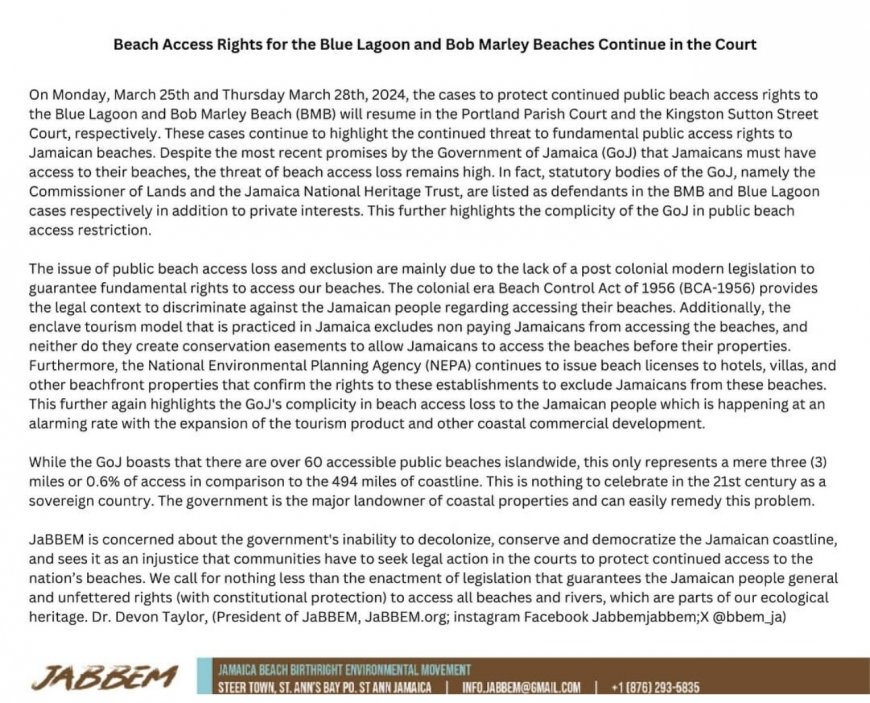
Historical Context: The Beach Control Act of 1956

The Beach Control Act of 1956, a remnant of Jamaica's colonial past, serves as the primary legal framework governing public access to the country's beaches and waterways. This outdated legislation, which was in place before Jamaica gained independence in 1962, fails to recognize the rights of the Jamaican populace to freely access and enjoy their natural resources. As highlighted in various discussions, including a notable Reuters article, the Act does not grant the general public any legal rights to beach access, effectively fencing off these vital spaces from the majority of Jamaicans.
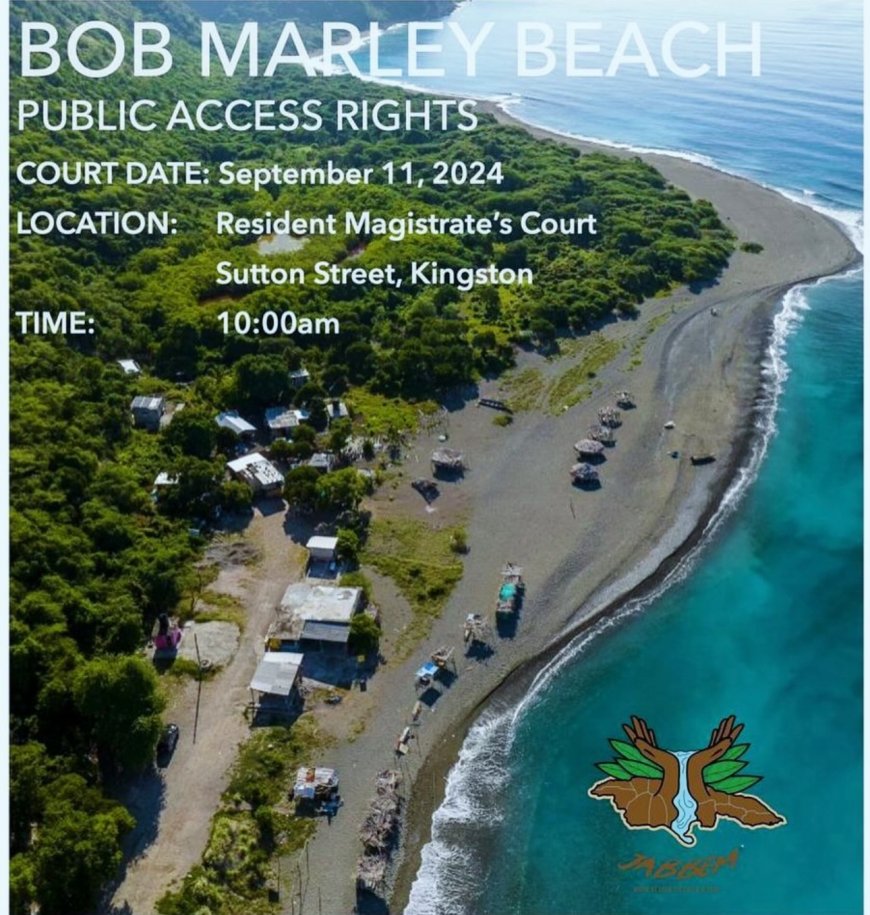
The Current Crisis: Threats to Community Beaches
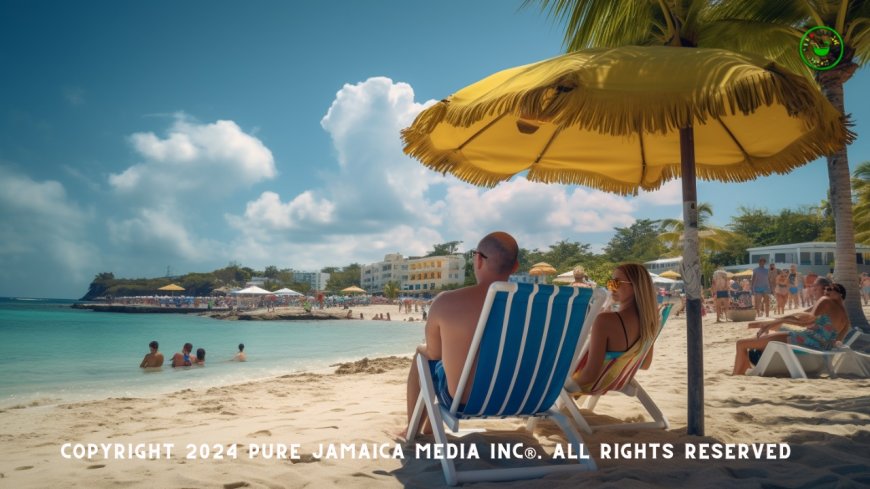
Recent events have underscored the urgent need for reform. One particularly alarming incident occurred at Bob Marley Beach in Bull Bay, St. Thomas, a site of cultural significance and a haven for locals. Here, the community faced the threat of losing access to this beloved beach, coupled with the displacement of fisherfolk and prominent Rastafari families. This situation is not isolated; communities across Jamaica, from Bluefields in Westmoreland to Little Dunn’s River in St. Ann, are experiencing similar challenges. The systemic nature of these threats indicates a broader crisis that demands immediate attention.
The Economic and Ecological Impact
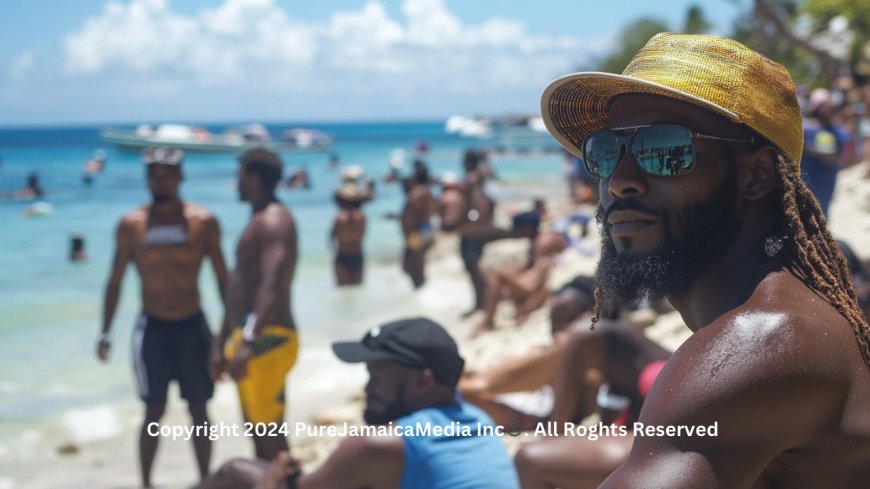
As beachfront tourism continues to expand, the consequences for local communities are devastating. The mass commercialization of coastal areas has led to the displacement of vulnerable populations, undermining their livelihoods and cultural heritage. Fisherfolk, who rely on access to the sea for their sustenance, find their rights increasingly curtailed. Moreover, this trend poses significant risks to the ecological health of Jamaica's coastlines, threatening biodiversity and the sustainable use of marine resources.
A Call to Action: Legislative Reform
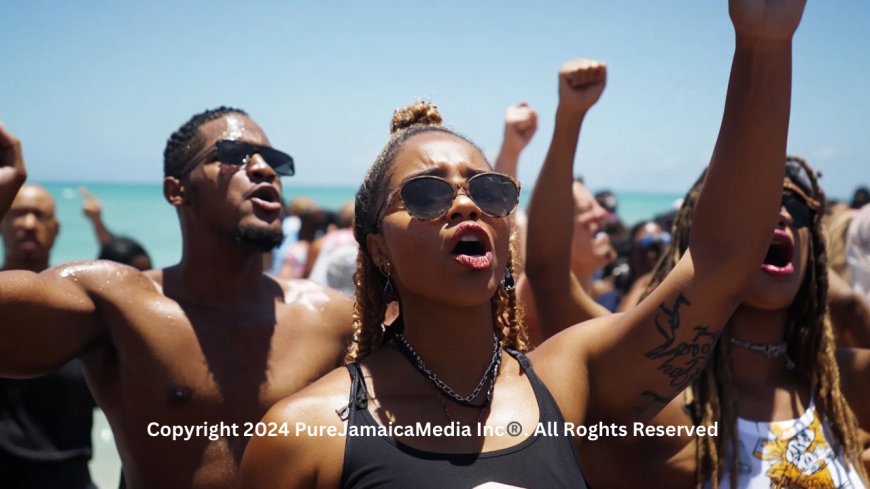
In light of these ongoing challenges, there is a growing consensus among Jamaican citizens, both at home and in the diaspora, that immediate legislative reform is essential. The Beach Access and Management Policy ‘For Jamaica (BAMP-2020)’ acknowledges the lack of general public rights to access the foreshore, highlighting the need for a modern legal framework that prioritizes the rights of the people. Advocates are calling on Prime Minister Andrew Holness, Governor General Sir Patrick Allen, and King Charles III to support the repeal and replacement of the Beach Control Act of 1956.

The time for change is now. Jamaica needs a comprehensive and inclusive law that guarantees unrestricted public access to beaches, rivers, and seas, while promoting ecological conservation. Without such reforms, the risk of social unrest looms large as communities are increasingly marginalized from their natural heritage. It is imperative that the government acts swiftly to ensure that all Jamaicans can enjoy the beauty and resources of their homeland without fear of exclusion or dispossession.











